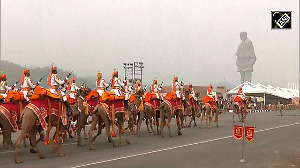Amidst reports that the Pakistan government is planning to impose a state of emergency in the country, a United States-based think tank has said any such decision by President Pervez Musharraf to remain in power will not be helpful to him and is likely to complicate an already complex domestic political situation.
"Emergency rule could allow Musharraf to prolong his hold on power, but it also will complicate an already complex domestic political situation," intelligence analysis agency Stratfor has said.
"The president is likely buying time to work out a power-sharing arrangement with the opposition Pakistan People's Party," it said.
The best-case scenario, it said, is that Pakistan's political forces will accept the election delay; the worst-case scenario is that Musharraf will fall.
Given the number of moving parts in the Pakistani political system, it is unlikely that he will be able to emerge from this process intact. "The decision to impose emergency rule could be challenged in Pakistan's Supreme Court, and the court could strike it down. This also could give militants in Pakistan an opportunity to carry out attacks," it said.
Observing that emergency rule is a very messy affair, it said in case "the government engages in any major political crackdown and/or suspension of freedoms and other civil rights, it will trigger a substantial backlash, which could lead to Musharraf's downfall."
It warned that the backlash could take the form of major protests, and "when they happen, Pakistan's security forces might not be willing to open fire -- which is when Musharraf could be asked to step down".





